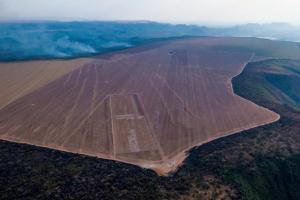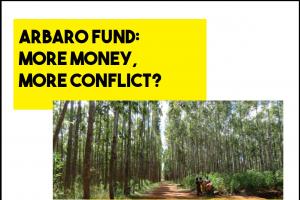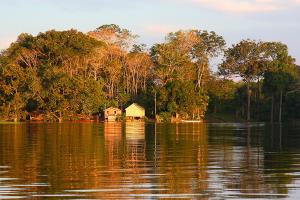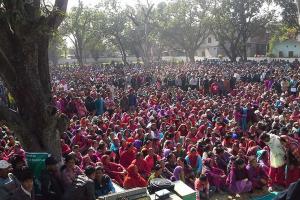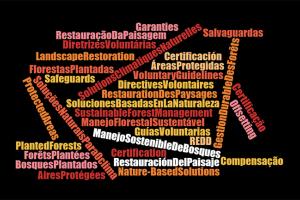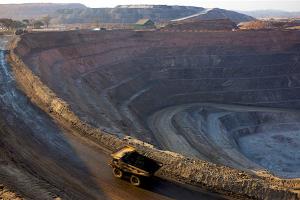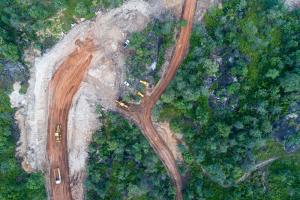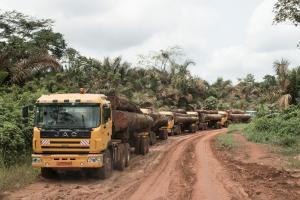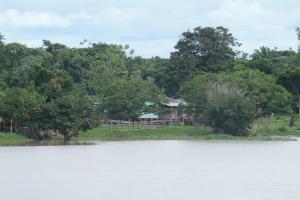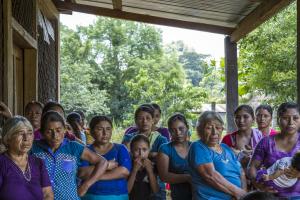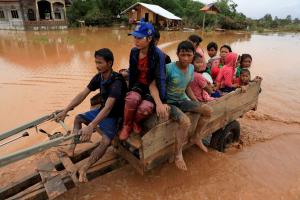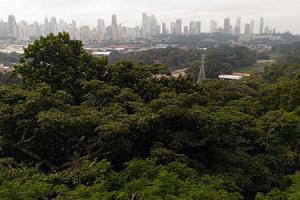The World Bank and Other Financial Institutions
“Poverty alleviation,” “sustainability,” “prosperity” and "development" are key words in the public relations materials of the World Bank, its private arm, the International Financial Corporation (IFC), and other development finance agencies. In reality, the policies, programmes and projects promoted by these institutions have time and again caused more poverty, violence and forest destruction.
Agro- and meat industries are winning the jackpot with the Covid-19 pandemic. While the pandemic profits stay at the top, devastation is what trickles down to the bottom. The consequences are deadly. A new wave of structural adjustment is on the way that will focus on increasing foreign agribusiness investment and exports of agricultural commodities.
Company plans 75,000 hectare expansion of Industrial Tree Plantations in Seven Countries in the Global South: Sierra Leone, Ghana, Uganda, Ethiopia, Peru, Ecuador and Paraguay. Download the leafelt to know more about the company and why communities should be alert.
The environmental, climatic and social crisis has been a reality for many for a long time. Yet, rather than acknowledging their contribution to this crisis, corporations and allies use the pandemic to amplify their push to expand Protected Areas, presenting it as a "global solution".
When the Chure region was declared a Protected Area, the rights of thousands of Community Forest Groups were undermined. They keep resisting despite the overall violence and the accepted project from the Green Climate Fund.
Language is never neutral. Certain concepts have historically been used to dominate people and territories. This article highlights concepts that are usually presented in a positive light but that actually serve economic interests that harm forests and communities.
This bulletin highlights threats involved in the so-called “energy transition,” and exposes its dirty secret of exponential expansion of mining in the global South as a consequence of the massive demand for “green” energy.
An oxymoron describes "a statement that seems to say two opposite things." The World Bank has a lot of experience with oxymoronic initiatives.
We live in an age of ever more “extreme infrastructure.” The construction of roads, railway lines and other infrastructure linking production and resource extraction centres with major consumer areas is tied to profoundly undemocratic forms of elitist planning.
Despite the government of Brazil announcing cutbacks to action against deforestation, the Green Climate Fund awarded US$ 96 million for alleged emission reductions in the Brazilian Amazon. These avoided emissions in part exist only on paper.
The creation of the Maya Biosphere Reserve has been legitimizing a destructive model: infrastructure and energy projects, hand-in-hand with Protected Areas “without people.” While conservation NGOs fatten their portfolios, peasant and indigenous communities are displaced, or conditioned to depend on NGOs and the market.
The government of Lao PDR has decided to establish the country as “the battery of Asia” by developing major hydropower dams along the Mekong River. The recent collapse of the Xe Pian -Xe Namnoy dam, however, accentuated once again the many risks of such projects.
